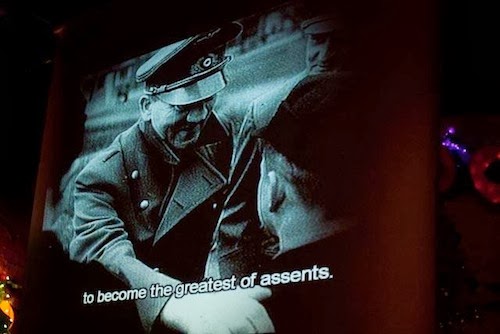And here is the poem of the images. I call it "Godard/Magoski":
To feel everything
such intensity
Our only mistake was to think it was a beginning.
the fourth wall of the house of the world,
on a par with primary truths
I don't know
Just music and painting,
which can be lived but not really talked about.
Life, a beginning of life,
like Euclid's parallel lines,
for students and Earth dwellers in general
and spectators in particular.
All is eclipsed,
and so it happens that the only big problem in cinema
not symbolic or simulated
to become the greatest of assents
when we utter the word "man"
That is most precious
Sorrow of revolution
Our hands slide and separate
But at last the sun shines again.
Citizen Kane is not an example for us to follow.
a manifestation of life finishes growing old
We had nothing but book to put into book
No activity can become an art
until its proper epoch has ended.
Then this art will disappear.
Men and women believed in prophets.
Now we believe in statesmen.
to embrace before us the totality of the world
this totality of the universe.
But beside it dwells nothingness
is also the gaze of nothingness upon us.
The image is light.
Nothingness, immensely heavy,
run by a rotating crew of the same incompetents.

































